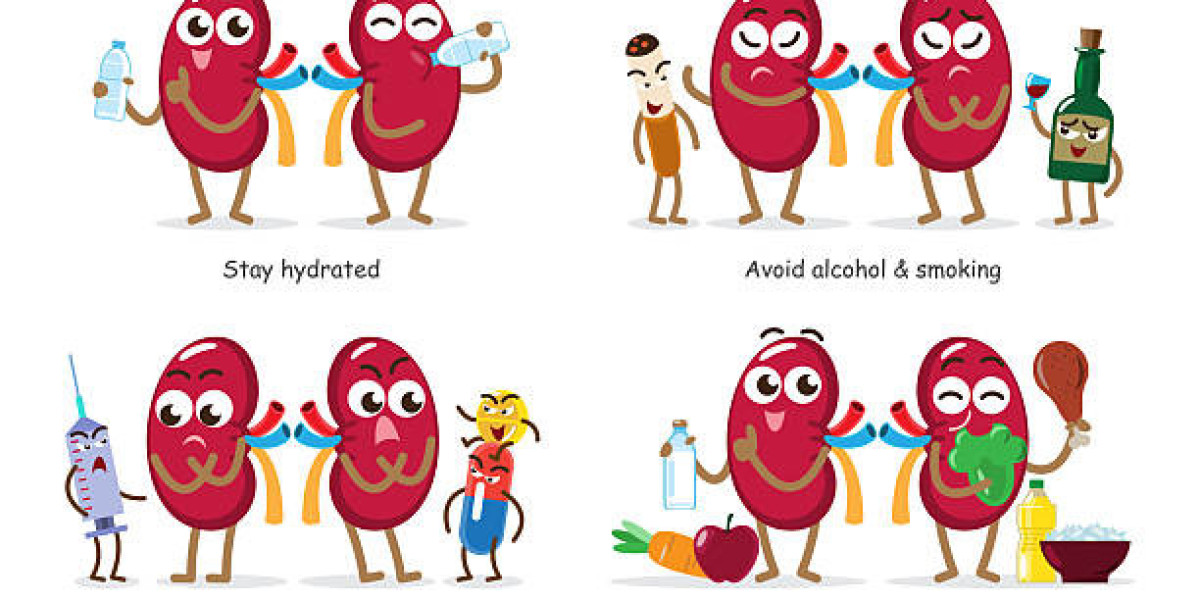Diabetic kidney disease is one of the most serious complications of long-term diabetes, affecting millions of people worldwide. Also known as diabetic nephropathy, this condition gradually damages the kidneys, often leading to chronic kidney disease (CKD) or even kidney failure if left unmanaged.
The good news is that with proactive care and lifestyle changes, it's possible to prevent or delay the onset of this condition. Early intervention can make a significant difference. Here are the first five smart moves everyone with diabetes should consider to protect their kidneys and overall health.
Step 1: Maintain Optimal Blood Sugar Levels
Why Blood Glucose Control Matters
The first and most critical step in preventing diabetic kidney disease is maintaining stable blood sugar levels. High glucose levels over time damage the tiny blood vessels in the kidneys, reducing their ability to filter waste properly.
Keeping A1C levels within your target range, usually below 7%, helps prevent or slow kidney damage. Continuous glucose monitors (CGMs) and regular finger-stick testing can help track fluctuations and allow for timely adjustments in diet, activity, and medications.
Key Tips:
Follow a diabetes-friendly meal plan with low glycemic index foods
Stay active with at least 30 minutes of exercise daily
Take insulin or oral medications as prescribed
Blood sugar stability is the foundation of diabetic care—and crucial for protecting kidney function.
Step 2: Control Blood Pressure Consistently
Protecting the Kidney's Blood Vessels
High blood pressure puts extra strain on the kidneys. It speeds up the damage caused by diabetes, especially when both conditions coexist. Controlling blood pressure is not only important for heart health but also for kidney protection.
The recommended target for people with diabetes is usually below 130/80 mm Hg, though personal targets may vary.
How to Manage It:
Reduce salt intake
Limit processed and fast food
Take prescribed antihypertensive medications like ACE inhibitors or ARBs
Practice stress-reducing techniques like meditation or deep breathing
Effective blood pressure management is one of the strongest defenses against diabetic kidney disease.
Step 3: Monitor Kidney Function Regularly
Stay Ahead with Routine Testing
Early-stage kidney disease often presents no symptoms. Regular medical screenings help detect issues before they escalate. These include:
Urine albumin-to-creatinine ratio (UACR): Measures protein leakage into urine
Estimated glomerular filtration rate (eGFR): Checks kidney filtering ability
Even minor elevations in protein levels in the urine may indicate the early stages of diabetic kidney disease. Identifying and treating it at this stage significantly improves outcomes.
Pro Tip:
Schedule kidney function tests at least once a year—or more frequently if recommended by your healthcare provider.
Explore more about routine monitoring and care at diabetic kidney disease for up-to-date medical insights.
Step 4: Focus on a Kidney-Friendly Diet
Eat to Protect Kidney and Blood Sugar Health
Nutrition plays a vital role in both diabetes management and kidney preservation. A kidney-friendly diet helps reduce waste buildup in the blood while also stabilizing blood sugar.
Suggested Foods:
Leafy greens (in moderation)
Whole grains (watch portion sizes)
Fresh fruits (low in sugar and potassium)
Healthy fats like olive oil and avocados
Foods to Avoid:
High-sodium snacks
Processed meats
Sugary beverages
Excessive protein, especially from red meat
A dietitian can personalize your nutrition plan to ensure it meets your health needs and aligns with your stage of kidney function.
Step 5: Avoid Harmful Medications and Smoking
Be Cautious About What Goes Into Your Body
Over-the-counter painkillers like NSAIDs (ibuprofen, naproxen) can harm kidneys if used frequently. Similarly, certain herbal supplements may contain compounds that stress the kidneys.
Tips to Stay Safe:
Always consult a healthcare provider before starting new medications
Avoid herbal treatments that aren’t approved by medical professionals
Refrain from smoking, as it damages blood vessels and accelerates kidney decline
Stopping smoking not only benefits kidney health but also lowers your risk of heart disease and stroke—common complications of diabetic kidney disease.
Final Thoughts
Preventing diabetic kidney disease begins with a proactive mindset and daily choices that protect kidney function over time. By managing blood sugar, controlling blood pressure, eating wisely, scheduling routine checkups, and avoiding harmful substances, individuals with diabetes can reduce the risk of kidney complications and enjoy a healthier future.
To learn more about diabetic care and long-term kidney health, visit Southern OKC for helpful resources and expert support.







